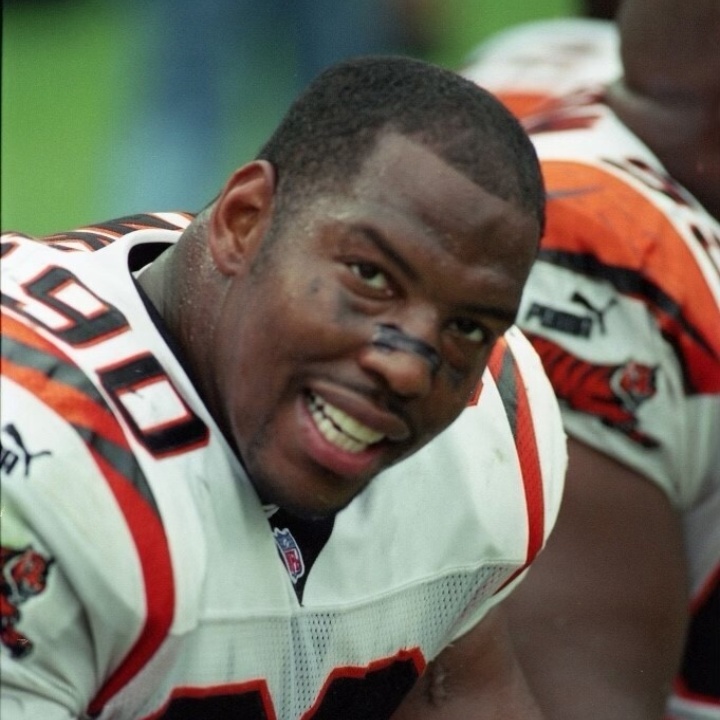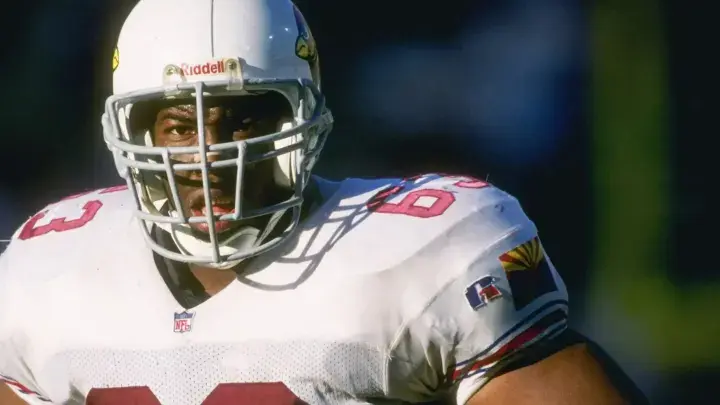
Catching Up with Former Player Rep: Michael Bankston
We had the opportunity to interview former NFLPA Player Representative and NFL defensive end Michael Bankston. Michael played 9 seasons with the Arizona Cardinals and the Cincinnati Bengals. He played his collegiate career at Sam Houston State University and was drafted in the fourth round of the 1992 NFL Draft. Michael is now the Chapter President of the NFLPA Phoenix Former Player Chapter. We caught up with Michael and he gave us insight into his life during and after football.

What inspired you to become a Player Rep?
I always believed that if I had an opportunity to help other players, I would take it. Even if it's mostly disseminating information that will better the quality of life for a player, I am thankful to be a part of that. I just took the initiative to do it and become a Player Rep while I was playing. Now after being a player, I continue to serve guys as a president of the NFLPA chapter in Phoenix. So any way that I can help, that's always something that resonates with me.
What lessons and experiences were you able to take away from being a player rep?
It was just a way to provide information back to the players about their rights and what they can do, and what they can't do. We’re all going to be former players at some point, and they have to recognize that too because the NFL stands for “Not For Long” so you have to understand that your time is limited. Some people get tenure that’s going to be significant, others don't. You just have to take advantage of that. A lot of times we're even helping guys that are one-year players or even signed a single contract. So anyway, we can give back to them and just again help them with a better-quality life. Like when you sit out there on an island, it's a whole different ball game when it's all said and done. It's just not the same. So that's one of the reasons I got involved and have been involved all these years.

Why should more players look to get involved/be active within the NFLPA?
Well, there are so many benefits that guys miss out on. Of course, you got the Trust, you got the PAF, you got the PA, you got these different segments of opportunities out there. We got the Brain and Body, we got the dedicated hospital network, so some guys don't know that they have the opportunity to still be involved or still get some of those benefits. That's why I say you can even help the one-year player and give them an opportunity as well to receive something. They might not get everything, but they will get something. You know it's a small network. It's only like 26 or 27 thousand that played the game professionally and it's only 12,000 that earned four years plus. So, you do the math, it's not that easy when you really look. Any way we can keep these guys involved too, because it still makes them feel good that they at least had the opportunity to reach that level, even if they didn't play that long, and we still have something for them to help them out down the line. So that's why it's important to me.
What’s a piece of advice that you have for players transitioning out of football?
Times have changed, let's be honest. The money I made back then they're now making it in one year. So they're looking at a different mindset than what we had when we got out of the league. Those guys, if they're smart about it, really don't have to do anything for the rest of their lives. But I still tell them to stay motivated, and if they get into some business, make sure they are doing the business. Don't hand it over to anybody else, because nobody's going to love your business more than you should love your business. That's one of the things and then finding your passion. Find something you enjoy doing, something to get you up in the morning. If it's coaching, if it's just working with kids in different ways, find your passion. I was 31 when I retired. You’re still young, you still have to go out and do something. You're not going to just be on the golf course all day long and party all night long. You have to find your passion, and if you find your passion that keeps you motivated and keeps you determined, it helps you live long too. Because if you don't have anything to do, you’re going to shorten your life big time.
What are you doing now in your career?
I work in the behavioral health field with kids. I've been working with kids in some aspects, and I did inpatient and outpatient. That's been a blessing. That's been my passion for a long time, so it worked out for me. I always wanted to help other people, but you still have to find a way. That transition is not as easy as people think it is. When I got home and you know, everything was scheduled out, everything was boom, boom, boom, boom, boom. I knew what I was doing 365 days a year. That includes when we went on vacation, because of the time frame, I had to get ready for the season. I didn't have to think about anything, I didn’t have to worry about anything. Another thing I would tell players is to start figuring out what they want to do before they stop playing because that's important too. I didn't think about what I wanted to do before I stopped playing. I wanted to get into business, but I really didn't know what business to get into, so I just started dabbling in different things. Some of it worked out, but some of it didn't. So that would be my advice, but it took some time to hone into what I was good at and what keeps getting me up in the morning and keeps bringing it to work, and so I'm thankful for that and thank God for that.

How have you applied the lessons you learned playing football to your post-playing career?
One of the things is, being a defensive player, we're aggressive. We don't give up and we don't give in, even when times get tough and when times get hard. We played in the old-school era, so it was “dog days”. My head was ringing, my body was hurting, but we still had to go out there and practice for three hours. So, I said if I could make it through that, I could make it through anything. That helped me in all the different ventures I'd done. In business, I was a stockbroker, coaching, and all those things. Have a never-give-up attitude, don't quit, don't give in, and no pain is no gain.
What does the NFLPA Fraternity mean to you?
The comradery. I'm sure you heard from everybody you interview, a couple of things guys miss, paychecks and comradery. We still do that here at the PA. It might not be as large scale but say tomorrow, I've got five or six of us going to do a camp on Saturday, so we'll be hanging out. I have a watch party on Sunday, so we’ll have the guys come over there.
So, we still involve ourselves. We still connect in that aspect, and we still find ways to get together and enjoy one another. That's one of the biggest things, the comradery aspect. Anytime we get a chance to get together, it's a great time, it’s fun. When we did the prostate cancer event, and I'm on the board of that, I think we had 60 some altogether, about 50 or so of those were former football players.